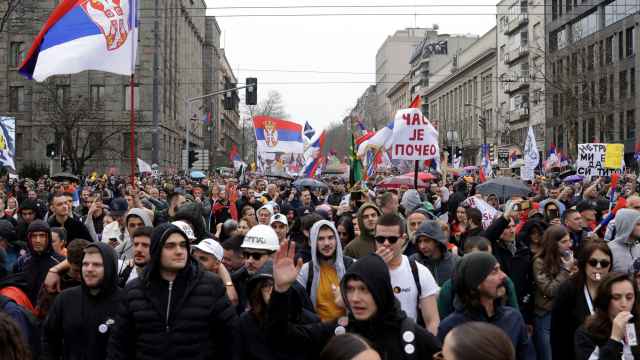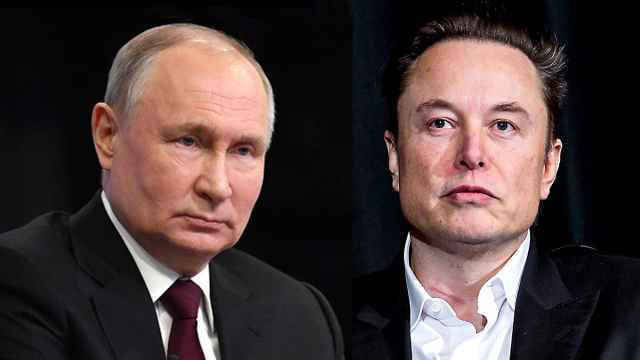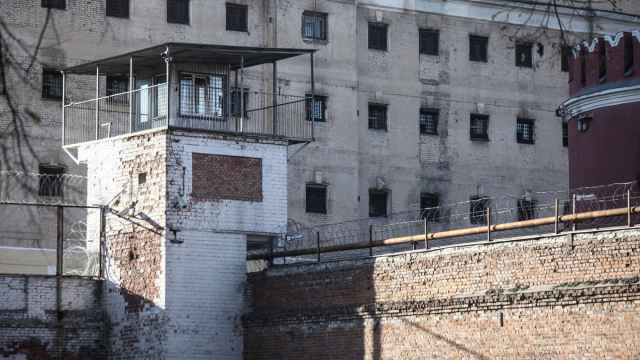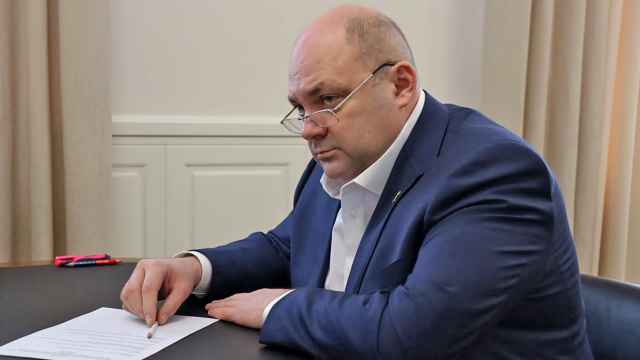With Russia and Ukraine having come dangerously close to the brink of war, Friday's meeting between President Vladimir Putin and President Petro Poroshenko —the first since Moscow's annexation of Crimea— seemed to signal a thawing of relations.
Putin, Poroshenko and German Chancellor Angela Merkel stayed behind for a brief chat following a photo session of the world leaders who had attended the World War II memorial event marking the 70th anniversary of D-Day landings in France.
During the conversation, which reportedly lasted one minute, Putin and Poroshenko agreed on the importance of deescalating the ongoing violence in Ukraine, Kremlin spokesman Dmitry Peskov told Ria Novosti on Friday.
"Both Putin and Poroshenko called for a speedy end to the bloodshed in southeastern Ukraine as well as to fighting on both sides — by the Ukrainian armed forces as well as by supporters of the federalization of Ukraine," Ria Novosti cited Peskov as saying.
"It was also confirmed that the situation can be resolved only by peaceful, political means," he said.
Peskov said Putin also held an informal meeting with U.S. President Obama, during which Obama reiterated Russia's role in reducing tensions.
"President Obama made clear that deescalation depends upon Russia recognizing president-elect Poroshenko as the legitimate leader of Ukraine, ceasing support for separatists in eastern Ukraine, and stopping the provision of arms and material across the border," deputy national security adviser Ben Rhodes said, Reuters reported.
On Saturday Poroshenko, 48, was sworn in as Ukraine's fifth president in a solemn ceremony at the country's parliament. Russia's Ambassador to Ukraine, Mikhail Zurabov, represented the country at the inauguration which, despite Putin's absence, in effect means the Kremlin recognizes the legitimacy of Poroshenko's presidency.
Following the inauguration ceremony, Poroshenko will present an action plan to stabilize the situation in Ukraine that will include fostering dialogue with Russia, Ukraine's parliament deputy Pavel Rozenko told Vesti.ua news website.
Poroshenko, a chocolate, automotive and media magnate, unequivocally supported anti-government protests in central Kiev last winter, but refrained from profiling himself as the Maidan movement's leader. While he declared that he would not budge in rejecting Russia's annexation of Crimea and refused to halt a government military operation in Ukraine's east, he added he is ready to cooperate with Russia.
"There can be no peace until we sort out our relationship with Russia," Poroshenko said in his Saturday inauguration speech. He also said the Ukrainian government is ready to hold early elections in the Donetsk region after declaring a minute of silence in remembrance of all victims of the protests both in Kiev and Ukraine's east.
Despite Poroshenko's unequivocally pro-Europe and even pro-NATO stance, many observers have pointed out his overall moderate rhetoric toward Russia and its leadership, especially in relation to contenders for the presidency.
"Poroshenko is a moderate politician who is prepared to compromise with Russia if authorities in the Kremlin will want to cooperate and reset relations with Ukraine," said Mykola Mikhalchenko, president of the Ukrainian Academy of Political Sciences.
Poroshenko's wealth is estimated by Forbes magazine at $1.3 billion, making him the seventh richest man in the Ukraine. Upon election he said he would sell most of his businesses, apart from Channel Five.
A Message from The Moscow Times:
Dear readers,
We are facing unprecedented challenges. Russia's Prosecutor General's Office has designated The Moscow Times as an "undesirable" organization, criminalizing our work and putting our staff at risk of prosecution. This follows our earlier unjust labeling as a "foreign agent."
These actions are direct attempts to silence independent journalism in Russia. The authorities claim our work "discredits the decisions of the Russian leadership." We see things differently: we strive to provide accurate, unbiased reporting on Russia.
We, the journalists of The Moscow Times, refuse to be silenced. But to continue our work, we need your help.
Your support, no matter how small, makes a world of difference. If you can, please support us monthly starting from just $2. It's quick to set up, and every contribution makes a significant impact.
By supporting The Moscow Times, you're defending open, independent journalism in the face of repression. Thank you for standing with us.
Remind me later.





